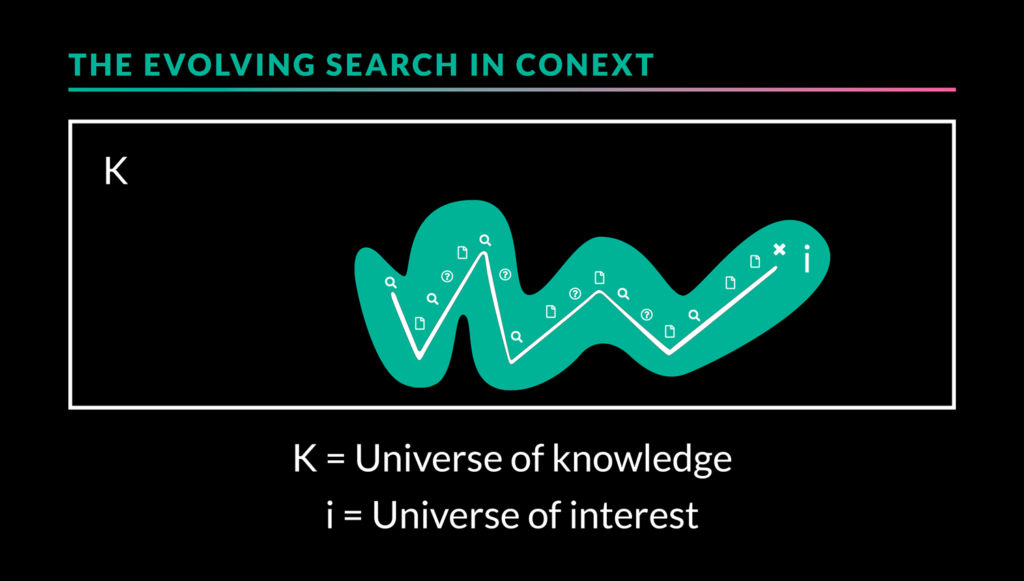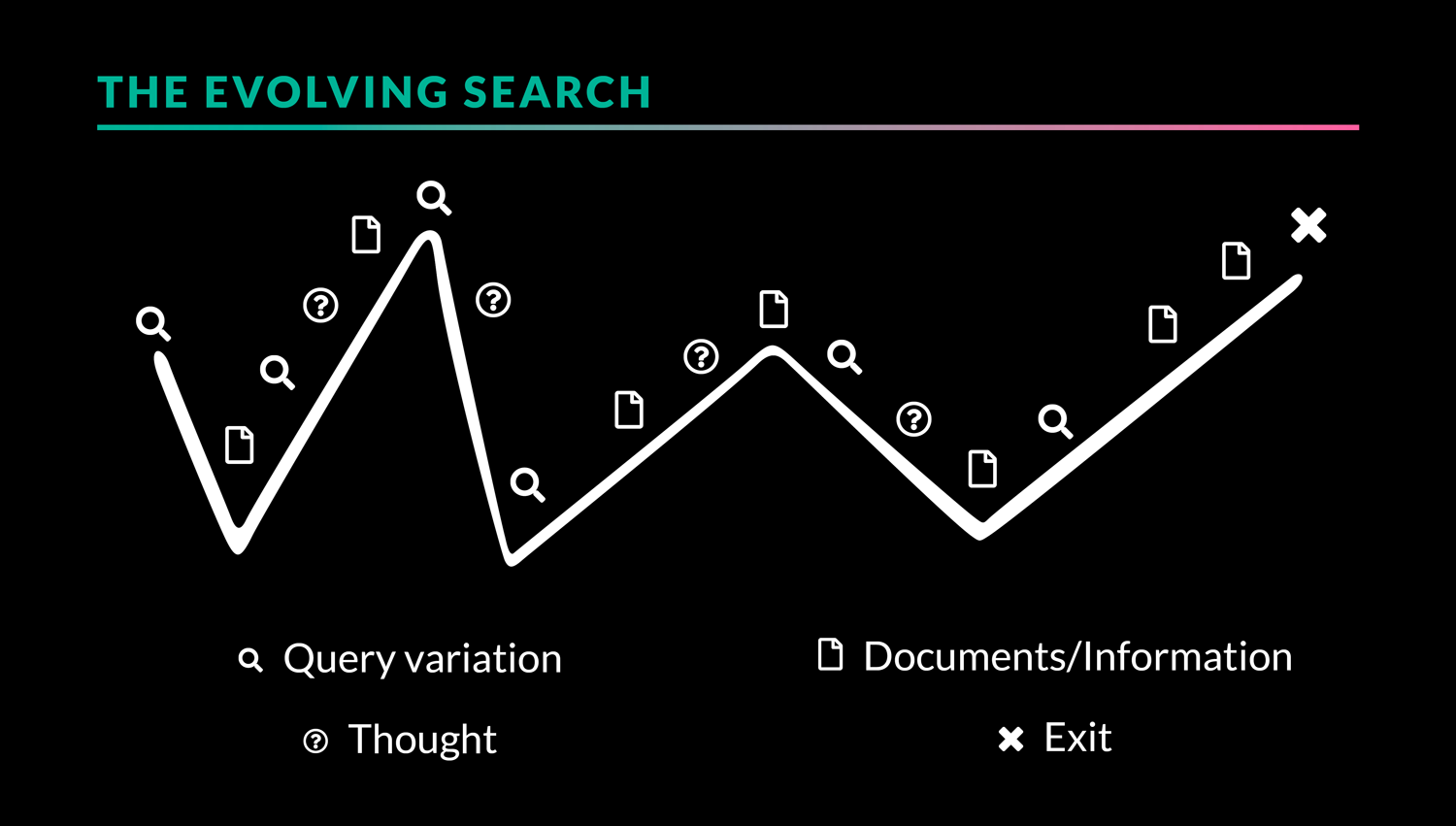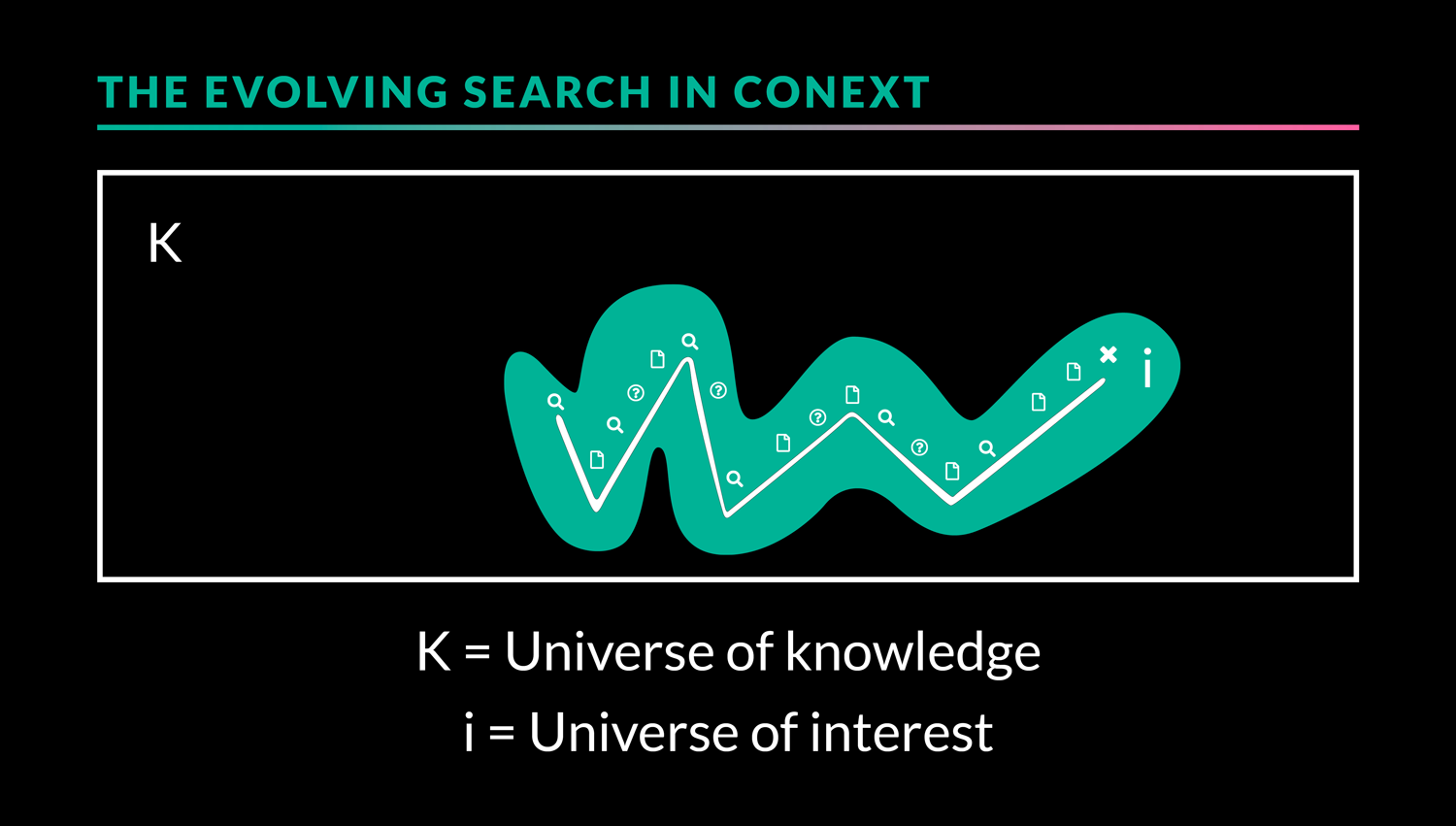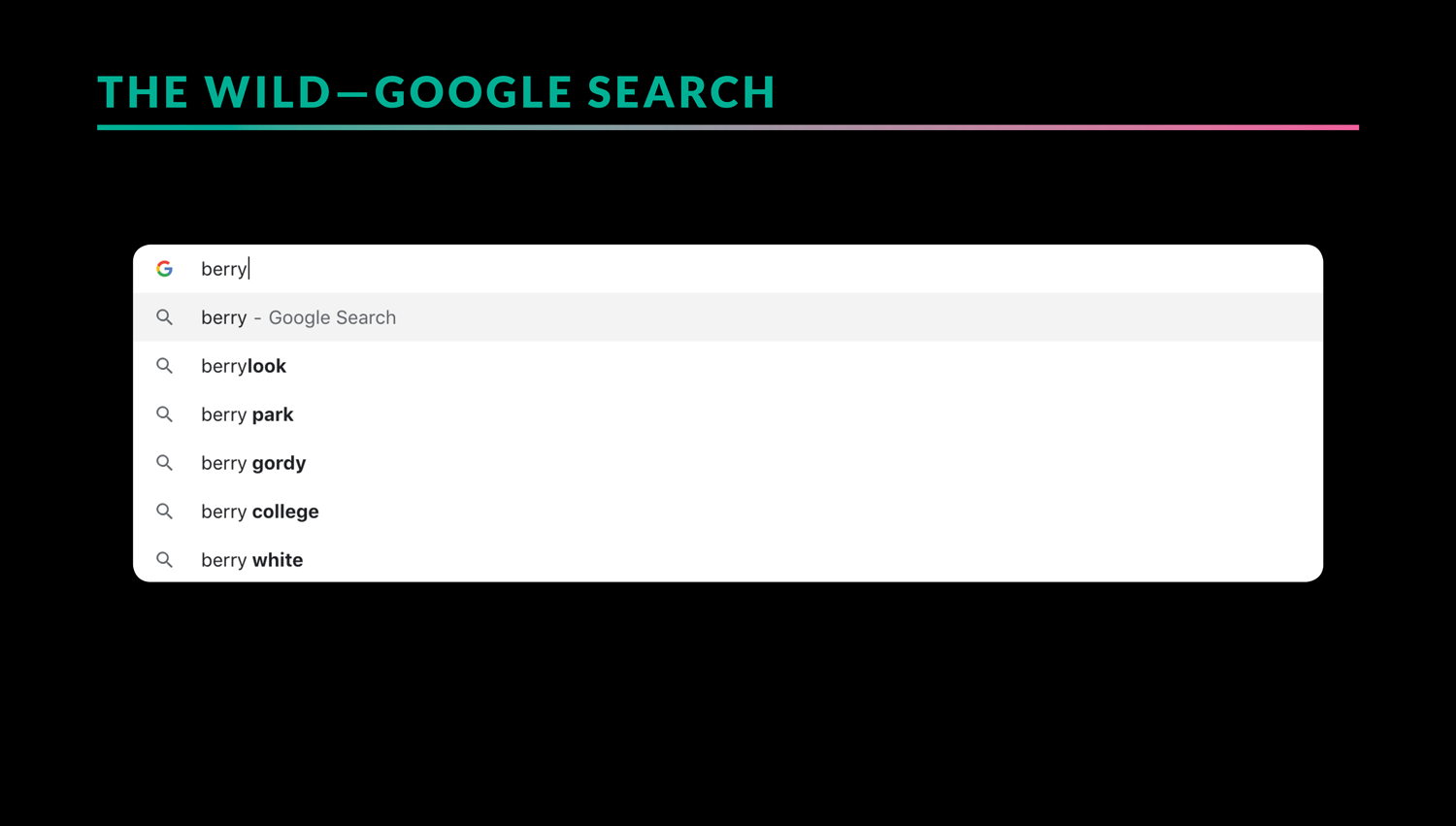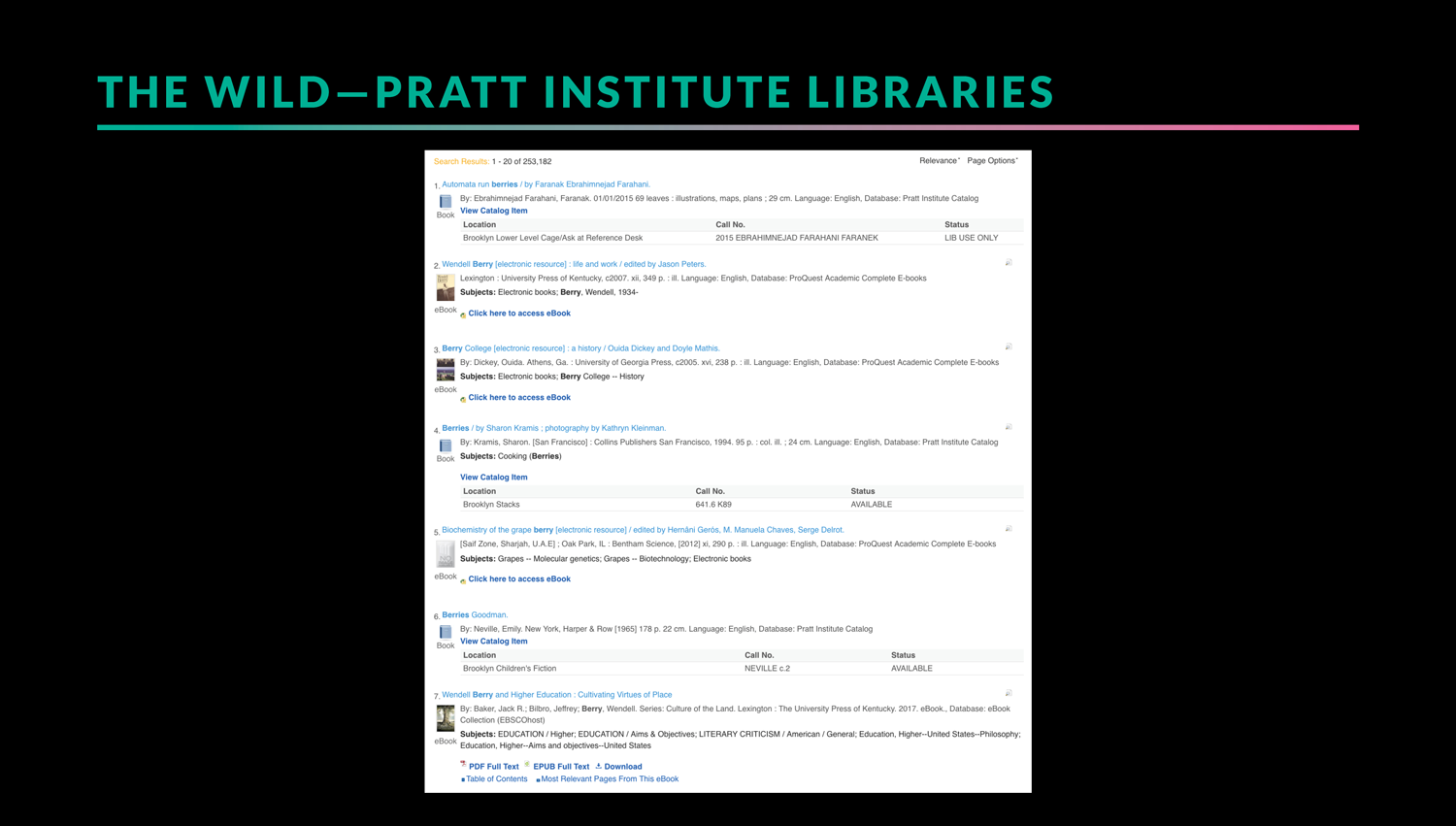This discussion on berrypicking techniques and how users retrieve information online is heavily based on Marcia Bates’s, The Design of Browsing and Berrypicking Techniques for the Online Search Interface (1989).
The berrypicking technique is… well, it refers to a lot of things.
- First, it’s a model for information retrieval, or how we search and find things.
- Second, it’s a term that describes the evolving search—I’ll cover these two topics in a bit.
- Third—and where I aim to direct the conversation— berrypicking techniques are meant to inform the design of browsing.
Let’s review the classic information retrieval model. This model was presented in 1977 and has informed so many studies (Robertson, 1977). It tells us that a document, which is essentially information, is represented in many ways: Articles, Journals, books, notes, recordings, and so on. Anyway, this model says that when someone has an information need, they can make a query search. And voila! Ideally, there is a match.
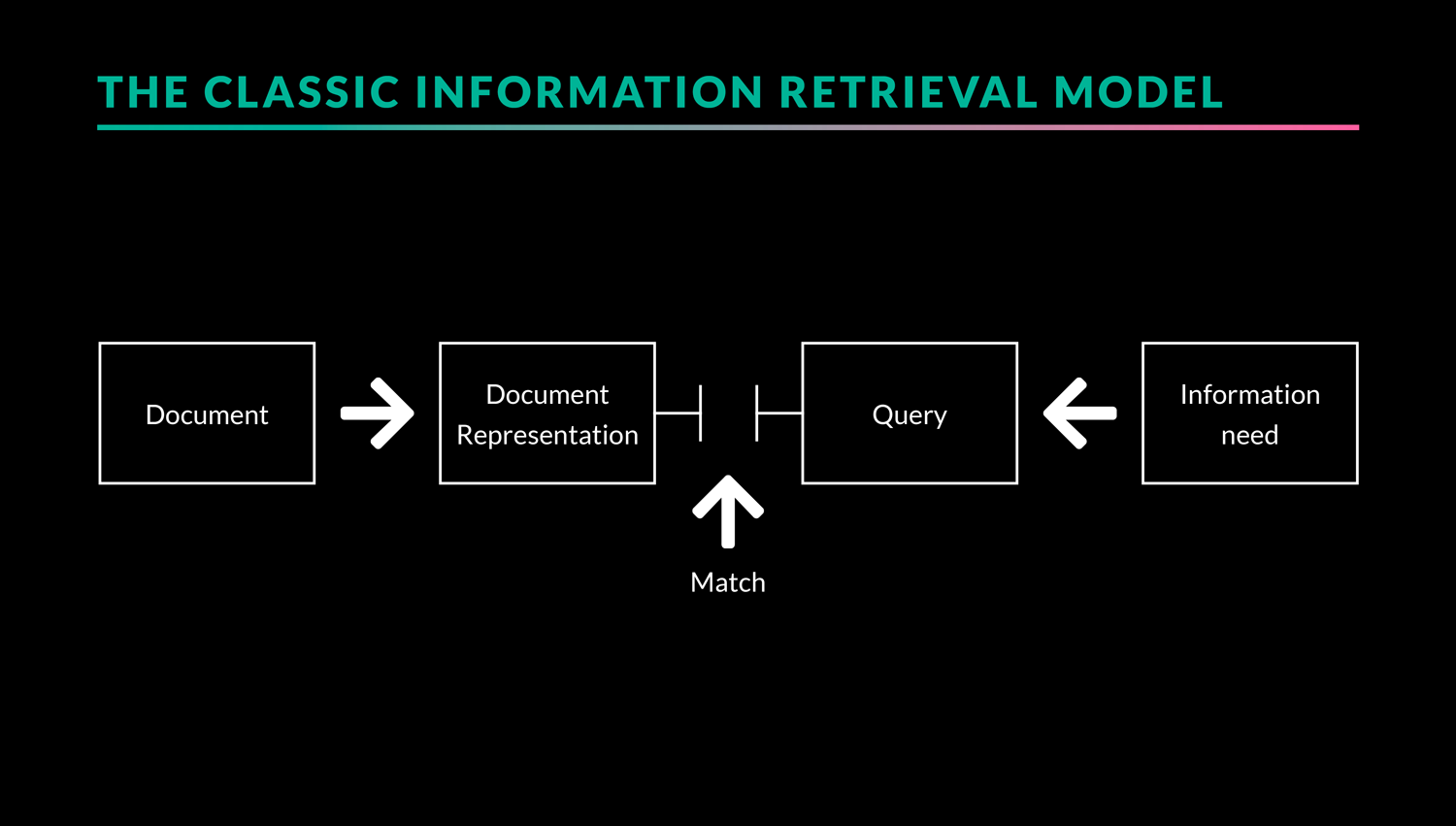
Since then, that model has gained more critics. As you would have it, the proposal is that researchers take a path called “the evolving search”. Marcia J. Bates says that researchers are involved in different actions at different times throughout the search process.
In this case, you can see that the model proposes that the user may begin the search with a query, they gain a document, there’s a new query, a new thought is formed, a new document is gained, and so on until the researcher ends, or “exits,” their search.
Here you see that the search is bound by the interest in the topic or subject. I think these parameters are set by the depth that you want to go in your research. Or maybe how far you want to take the scope of your search.
And so the evolving search that takes place in the Universe of interest is bound by the parameters of the available knowledge. This is the universe of knowledge.
Marcia presents those parameters in such a strict fashion. But I have a sneaking suspicion that that is not the case. Those bounds and arena of the universe of knowledge probably look something more like the universe of interest.
In a practical context and for example, Bates poses the bit-by-bit actions of a researcher. They could start with an author search, Subject searches, Footnote chasing, Area Scanning, Journal Run, And citation searching,
But back to this a-bit-at-a-time search. What does it mean for designers? More specifically, what does it mean for those designers of browsing experiences and search interfaces?
I wanted to note berrypicking techniques that are available in the context outside of the academic or scientific research domain.
Here is one example in the wild—on Instagram. You can see in the four screens that are very similar. At the search bar, you can see that I searched “berry”. Instagram allows me to “filter” between “Top” search results, “People” results, “Tags” Results, and “Places” results.
In the 5th screen, you can see that I have not searched for anything. I have only switched over to the Explore section and already Instagram poses different avenues of interest.
Here’s the google search. I’m not sure how far out Google is expanding my universe of interest relative to the topic of “berry”. And, I really wonder how Google views its search users.
Here are the berrypicking techniques evident in the search for “berry” on Wikipedia. The results are broken down into a type of food, a type of botanical fruit, and other categories like music, I think this is far out in regards to the universe of interest that Wikipedia has set up for me.
And back to the context that Marcia Bates explores in the paper. Here are the search results for “berry” on the Pratt Institute Libraries quick search. Initially, it has given me seven ebooks and books. The eighth result is an academic journal…finally, but that is way below the fold.
What do yall think?
References
Bates, M. J. (1986). An exploratory paradigm for online information retrieval. Intelligent Information Systems for the Information Society. Amsterdam: North-Holland, 91–99.
Bates, M. J. (1986). Subject access in online catalogs: A design model. Journal of the American society for information science, 37(6), 357–376.
Bates, M. J. (1989). The design of browsing and berrypicking techniques for the online search interface. Online review, 13(5), 407–424.
Ellis, D. (1984). The effectiveness of information retrieval systems: The need for improved explanatory frameworks. Social science information studies, 4(4), 261–272.
Ellis, D. (1984). Theory and explanation in information retrieval research. Journal of Information Science, 8(1), 25–38.
Oddy, R. N. (1977). Information retrieval through man-machine dialogue. Journal of documentation, 33(1), 1–14.
Robertson, S. E. (1977). Theories and models in information retrieval. Journal of documentation, 33(2), 126–148.
